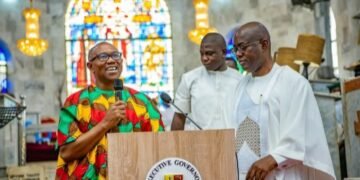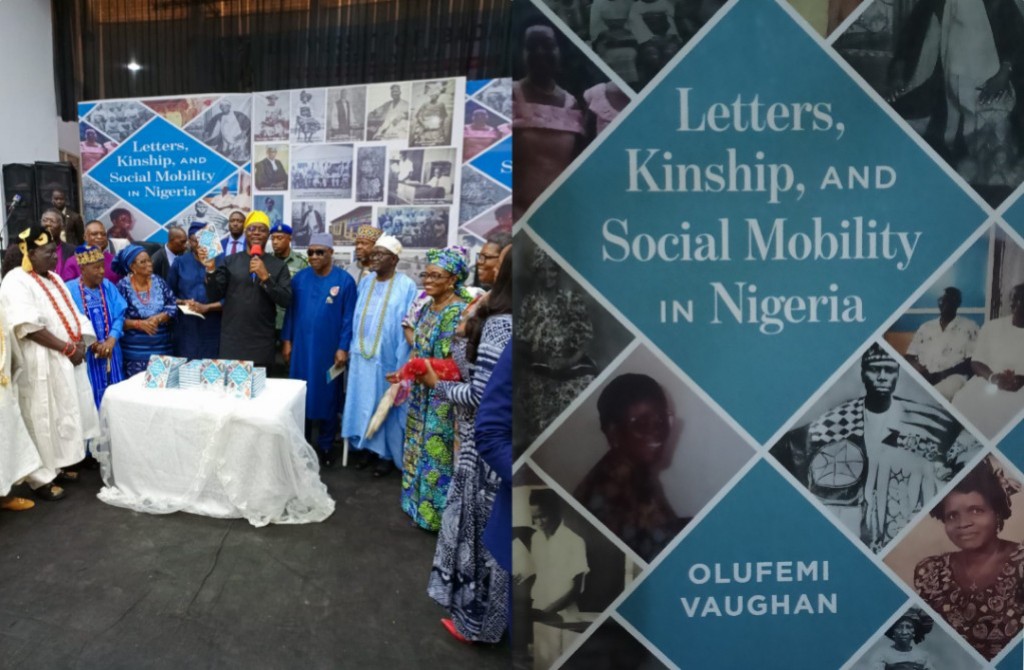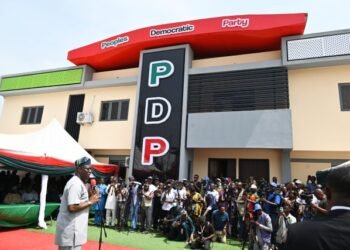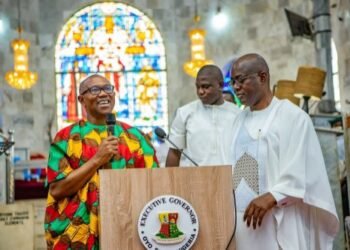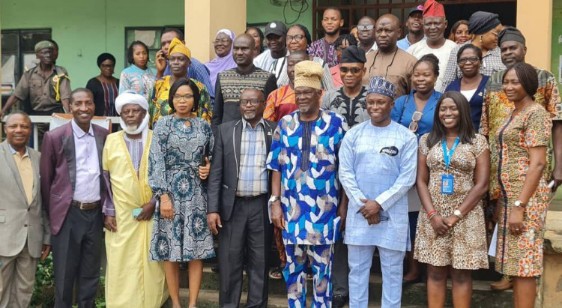Oyo State governor, ‘Seyi Makinde, has called for the revival of community-based values as a means to transforming the contemporary society.
He made the call at the launching of a book, “Letters, Kinship And Social Mobility in Nigeria“, held at the Trenchard Hall, University of Ibadan (U.I) last Thursday.
The book was authored by Professor Olufemi Vaughan, currently the Alfred Sargent Lee ’41 and Mary Ames Lee Professor of African Studies at Amherst College, Amherst, Massachusetts, USA.
It was a trove of more than 3,000 letters compiled in a span of 80 years and received by the author from his late father, Abiodun Alfred Vaughan, in 2003.
Governor Makinde, the chairman of the occasion, underscored the importance of shared Yoruba kinship values and education as critical messages of the major letter writers in the book.
He called on Nigerians to engage important community-based values derived from the past to help change and transform contemporary conditions.
Additionally, Governor Makinde stressed the importance of keeping good records from the past to assist in understanding current social, political, and economic conditions.
He also urged Nigerians in the Diaspora to lend support to efforts at reviving community-based values in contributing to the development and progress of Nigerian society.
Makinde promised to order many copies of the book the teaching of History and Social Studies in public secondary schools and universities, as well as in all the local government areas in the state.
The governor attended the event with his deputy, Barrister Bayo Lawal and many members of the State Executive Council.
Also speaking at the event, Professor Bolanle Awe, a renown professor of Nigerian and Yoruba History, made a strong case for the usage of letters and other archival materials in historical writings.
Awe, the first female lecturer at the Department of History, U.I and the first female academic staff in a Nigerian university, emphasised the importance of record keeping culture and history writing.
Professor Bolanle Awe therefore implored all those who want to write history to keep their records and leave them for posterity.
The book, “Letters, Kinship And Social Mobility”, was about the first scholarly effort that critically engaged the medium of letter writing to explore the everyday experiences of Africans in the modern world.
The letters, written by four generations of the Vaughan family in Ibadan, Nigeria, between 1926 and 1994, were the comprehensive correspondences of some major writers that gave a deep insight on how to critically explore the evolution of modern Yoruba society within the context of the formation of the Nigerian State and society.
The stories constructed from the letters were also narratives about how modern African experiences evolved out of indigenous local structures, values and ideas at a transformative moment in history.
The writers of the letters included Mariam Vaughan 1866-1972); Samuel Ariyibi Vaughan (1887-1985l; Dorcas Olayinka Brainerd (1894-1973); S. A. Oloko (1894-1984) and Rachel Ayodele Akinloye (1898-1993).
Others were Jadesola Juliana Odebunmi (1902-1996); Abiodun Alfred Vaughan (1907-2004); Bamidele Theo Brainerd (1916-2004); Adisa Meredith Augustus Akinloye (1918-2007); and Gladys Aduke Vaughan (1920-2014).
These writers, and many others mentioned in the book, as clerks, administrators, health officers, nurses, writers and students, laid the foundation of modern Yoruba society in Colonial Nigeria in the first half of the 20th Century.
The book launch was put together by Ambassador Ibironke Adefope, Mrs Funso Adegbola, Mr Olabode Akindeji-Oladeji and Mrs Omotara Adefope, among others, while the discussants were Professors Kunbi Olasope, Tayo Adesina, Chief Lekan Alabi and Chief (Mrs) Taiye Soyege.
In attendance at the event were the state deputy governor, Alhaji Bayo Lawal and most members of the State Executive Council; the Olubadan of Ibadanland, Oba Sen Lekan Balogun CFR, Alli Okunmade II, represented by some members of the Olubadan-In-Council;
Archbishop of Ibadan Diocese (Anglican Communion), Most Rev’d (Dr) Joseph Akinfenwa; Bishop, Diocese of Ibadan North, Rt Rev’d William Aladekugbe; Bishop of Oke Ogun Diocese, Rt Rev’d Adewale Adebiyi and Bishop of Oke Ogun Diocese (rtd), Rt Rev’d (Dr) S. O. Amusan, among others.


